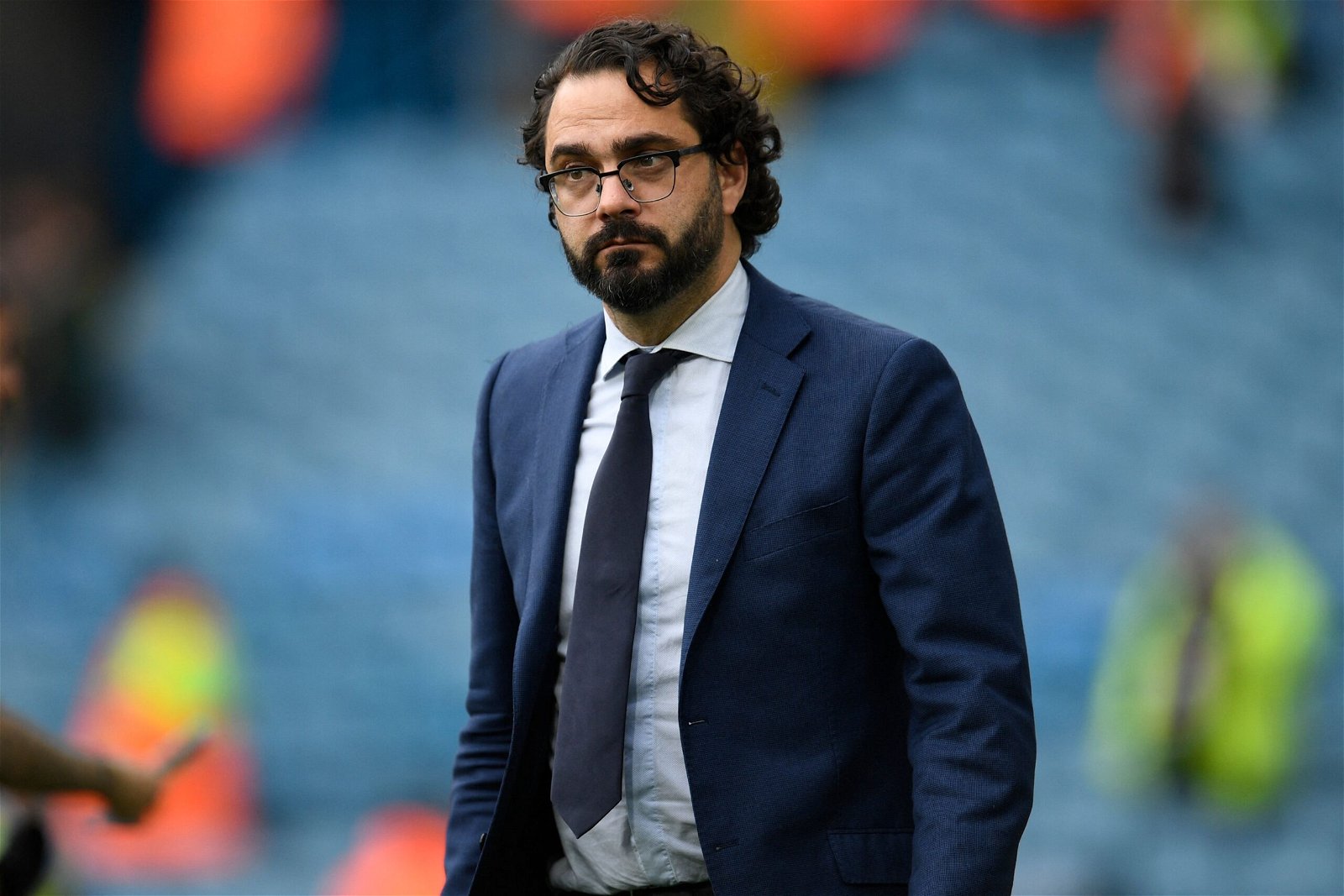
Leeds United’s director of football, Victor Orta, has recently come under fire for the recruitment strategy that has left the club on the verge of relegation. The Spaniard’s approach has arguably always been high risk, maintaining a small squad in order to promote youth development.
However, while the approach previously brought success under Bielsa, the gamble has not paid off this season causing the Argentine to succumb to the sack. Leeds have slipped from ninth in the table during their first season back in the Premier League to 18th this year and may well be heading for the drop.
Whether or not Leeds escape relegation, fingers will be pointed when identifying who was to blame for such a catastrophic season and many will be pointing at Orta. But what exactly is Orta’s approach in the transfer market and what needs to change if Leeds are to become competitive once more?
Building careers, not buying them
Earlier this year Orta clearly set out his transfer policy to TGG’s Scouting and Recruitment Webinar in a defence of the club’s approach.
He said: “If you believe in youth development you need to prove it. Our idea is 18 professionals and the other four players all with the under-23s because we believe in youth development and want to give responsibility to the academy. It’s true that it’s risky. It’s true that if you have these four players with more experience, perhaps the results in the short-term will be better.”
For Orta then, the strategy of building a relatively small squad is a gamble designed to improve the prospects of players coming through the academy, perhaps at the expense of short-term success. Orta went on to explain that the policy is an attempt to combat the financial disparity between Leeds and the clubs at the top of the table.
“Leeds United is not a team that can be in the market for £150m each summer. To reduce the gap we need to build careers. We can buy one or two careers per summer, but the rest, we need to build careers. The only way to build careers is to make our people anticipate talent, to create players at 14 or 15 who can be future Premier League players and create a pathway there.”
While this has proved to be a controversial approach amongst supporters it appears Jesse Marsch is on board with putting the emphasis on youth. He recently told Sky Sports that in three years he wants Leeds to have “the best academy in Europe, with young players that are playing in the first team consistently.”
Marsch claimed he hoped to be “competing for Europe consistently with our process of developing players from the academy into the first team. In the process we are also creating world class players that can perform here, but also can help us financially by selling them to massive clubs for massive amounts of money and then reinvesting that in the infrastructure of the club”.
The clear focus which appears to have aligned Orta and Marsch is a long-term project aimed at targeting and integrating under 23 talent, rather than established or experienced stars. This is apparent in the club’s approach to the transfer market in recent windows. Youngsters such as Ian Poveda, Joe Gelhardt and Kristoffer Klaesson have all arrived at Elland Road in the last three years and have gone on to feature for the first team.
Meanwhile, talented young players such as Lewis Bate, Sam Greenwood, Cody Drameh and Crysencio Summerville have been poached from other academies and added to the club’s youth setup. Even when Leeds “buy one or two careers per summer”, the club generally target younger players.
For instance, last summer Leeds signed Jack Harrison, Dan James and Junior Firpo, all of whom were 25 or under. The previous season Raphinha was signed at just 23-years-old while 20-year-old Illan Meslier’s loan move was made permanent. These players were bought relatively cheap at a young age and have a large amount of resale value.
As a result of their emphasis on youth, Leeds had an average squad age of just 25.6 years old this season according to Transfermarkt, the fifth youngest in the division. The success of the approach, for Orta, will be measured by the opportunities for academy players at first team level and the impact these players can have.
In this sense, Premier League minutes for the likes of Klaesson, Summerville, Greenwood, Leo Fuhr Hjelde, Drameh, Charlie Cresswell, Bate and Gelhardt this season will be viewed as a positive sign that the club is developing players capable of featuring for the senior side. On the other side of the debate, supporters will argue that relying on players with no senior experience has contributed to the team finding themselves in the relegation zone.
There can be no doubt that Orta’s strategy has left the club vulnerable to the kind of injury crisis that struck them this year. According to injury analyst Ben Dinnery, as of the beginning of April, Leeds players had been injured for more time than players at any other Premier League club, missing a total of 1284 days due to injury.
This came from Leeds suffering 31 injuries in total. Only Everton suffered more injury absences than the Whites. Not only were Leeds poorly equipped to deal with this crisis, due to having just 18 senior professionals in the squad, the small squad combined with Bielsa’s intense pressing style likely contributed to it, with players less likely to be rested or rotated.
Time for change?
Despite Orta, insisting the club will persist with what is a long-term strategy, this season will likely have planted doubt in the back of some minds at the club. Leeds’ transfer plan is an admirable one, which may well bear fruit in the future with the club clearly possessing a talented and capable crop of youngsters who may save them millions of pounds in years to come.
If a number of these exciting academy players do make the grade, it will prove Orta’s strategy to have been a sensible way of negating the club’s financial disadvantages in the transfer market. However, in the short term, the club’s reluctance to add squad depth has plunged them into immediate relegation danger.
If they are to survive this season, there will surely be some at the club who will push for more senior signings to avoid a similar fate next campaign. Ultimately, Orta must be willing to balance his long-term plan with the immediate pressures of top flight football.


















